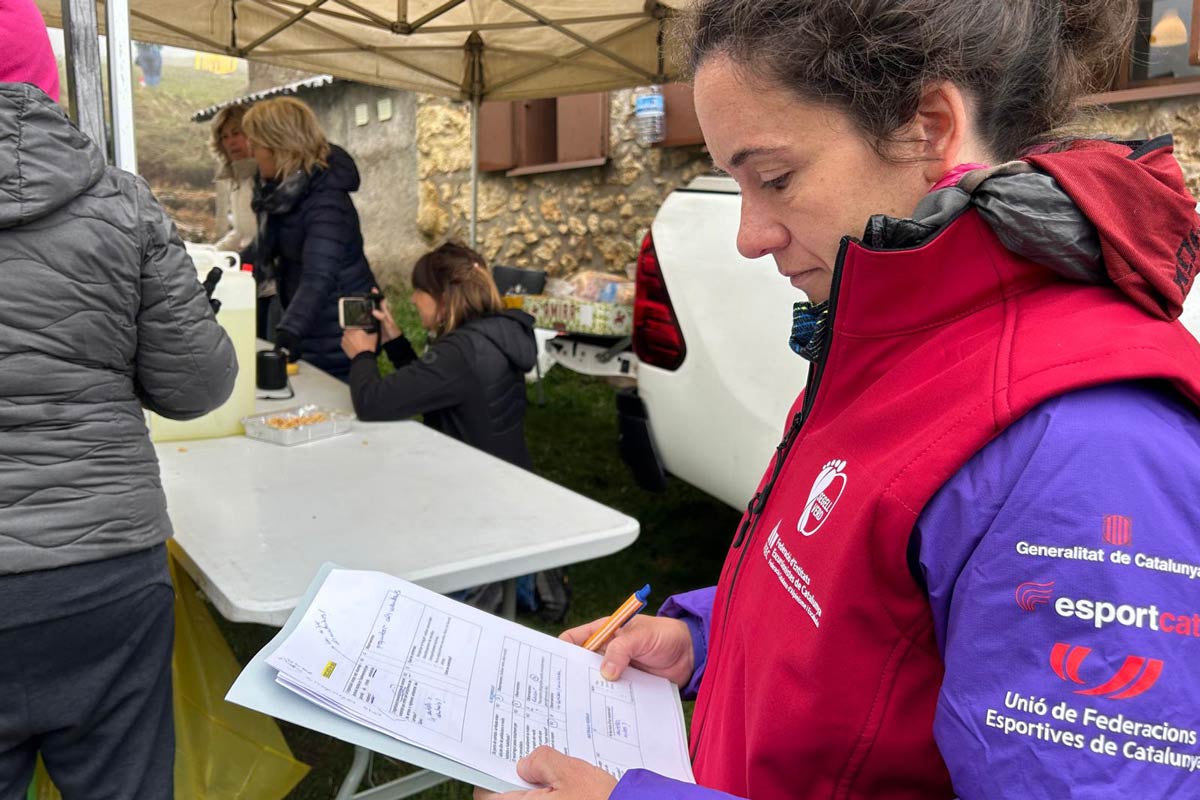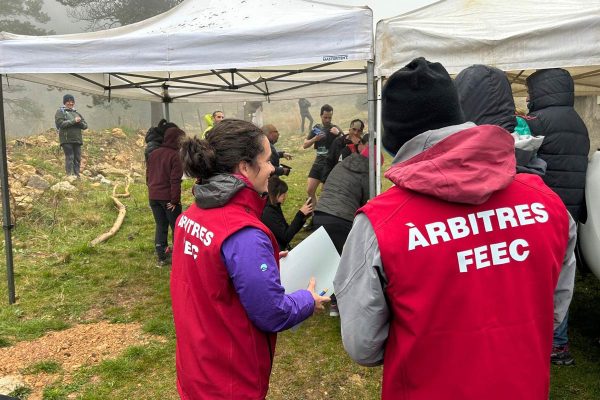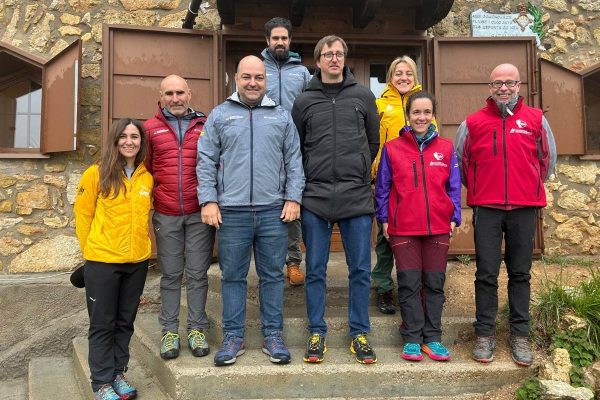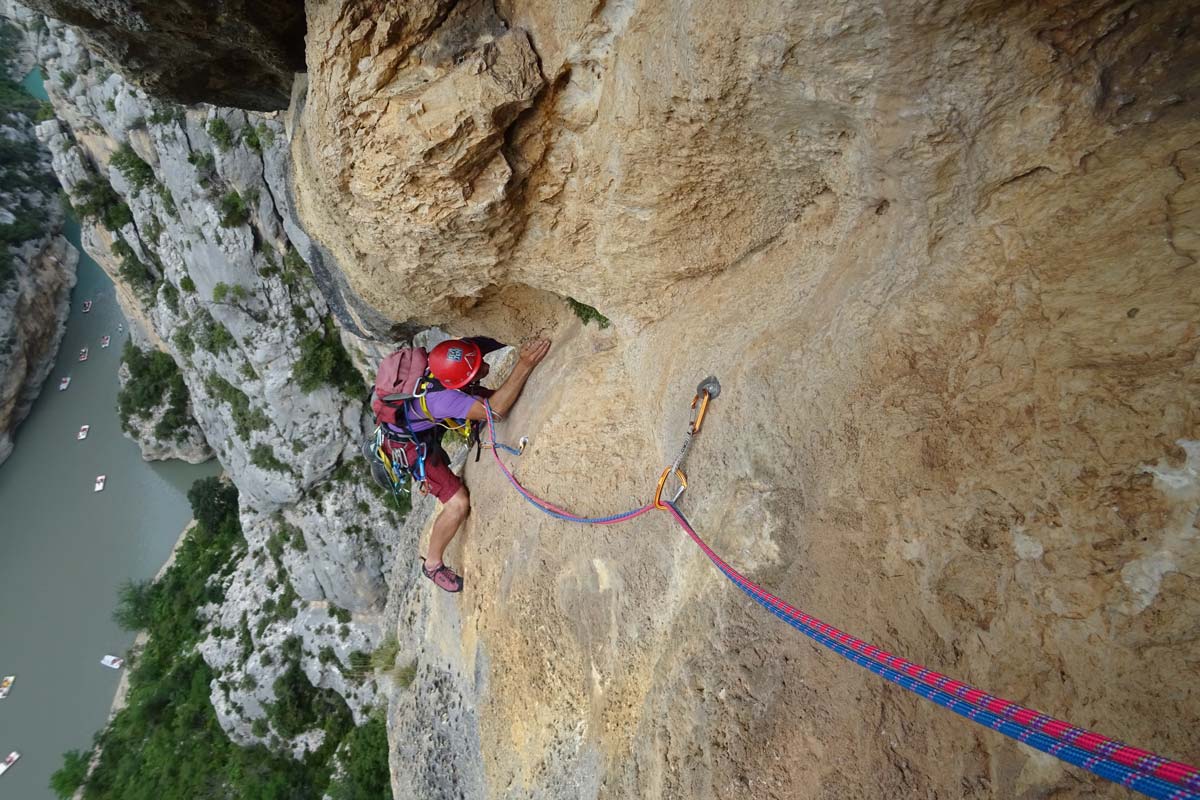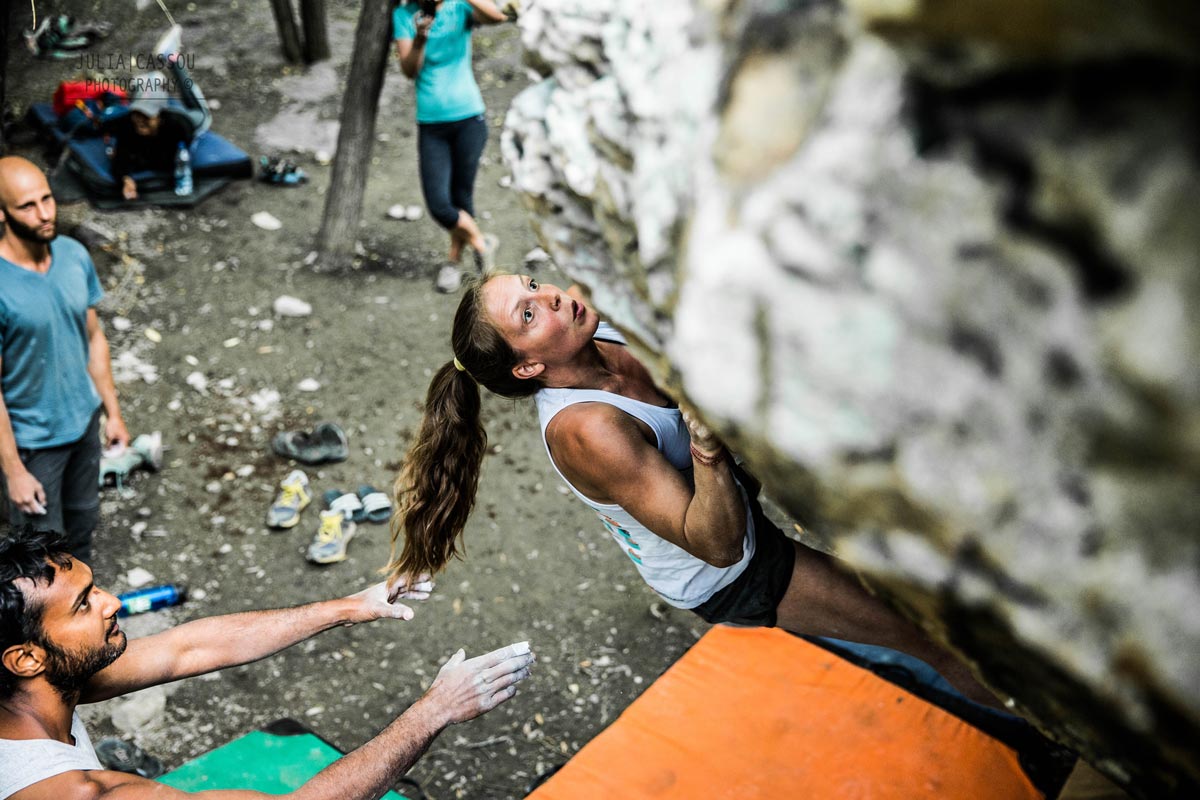As part of its Climate Action Plan for Member Associations, the UIAA is committed to sharing a number of case studies about the climate journey of its member associations spread across 70 different countries. These case studies fall into the fields of commit, mitigate, adapt, educate & advocate. Case studies come from associations of different sizes, from those with full-time staff and a budget dedicated to the implementation of a climate action plan to smaller federations run entirely on a volunteer basis.
This latest case study comes from the Federació d’Entitats Excursionistes de Catalunya (FEEC)/Catalan Mountaineering and Climbing Federation, a UIAA full member since 1932 and counting an impressive membership of over 86,000 individuals across Catalonia. One of the cornerstones of the FEEC project is the Green Label initiative, which is detailed in full below.
The Green Label-FEEC (Segell Verd-FEEC)
The Green Label-FEEC (Segell Verd-FEEC) was developed as a tool to ensure sustainability in mountain sports activities. This initiative emerged in response to the increasing over crowding of natural spaces, a trend that has intensified in recent years, and is a threat to conservation. The design of the scheme is based on the Code of Best Practices in mountain races, published in 2017, and has been evolving with objective criteria to minimise the environmental impact of races and sports events.
This certification serves as both an advisory and learning tool for organisations and entities seeking to improve their environmental management. Thanks to collaboration with the Department of Territory, Housing, and Ecological Transition (DTER), a key element in this process was introduced: the environmental referee (see photo below), an expert responsible for ensuring compliance with the established criteria, conducting a rigorous assessment of each event, advising organisers, and proposing improvements to reduce environmental impact.
The process of obtaining the seal includes three phases:
- Application: Submission of documentation and validation of the self-assessment form
- Event evaluation: Verification by the environmental referee through an environmental act
- Final Assessment: Review by the consultative committee of the Catalan Mountaineering and Climbing Federation (FEEC), which issues the final resolution
Project objectives and expected impact
The Green Label is designed as a strategic tool to drive a real transformation in how mountain activities are conceived and organised. In a context of increasing human pressure on natural spaces, this initiative aims to provide organisers, athletes, and users of these environments with a solid reference in sustainability, fostering a culture of environmental responsibility and commitment.
The main objective is to support and guide organising entities in their transition towards a more environmentally respectful model, providing objective criteria to identify and minimise the impacts of their activities. The seal not only serves as a mark of environmental quality but also as a pedagogical and self-assessment tool, allowing organisations to detect weaknesses and implement tangible improvements in their environmental management.
This project aims to break the perception that mountain environments are unlimited-use spaces, fostering a more conscious perspective that values their fragility and the necessity of their conservation. Often, the impact of a sport or recreational activity goes unnoticed by its participants and even by the organisers themselves. The Green Label seeks to reverse this situation through training, personalised advice, and rigorous evaluation of best practices.
Milestones achieved so far:
- Pilot phase at events to test the certification criteria and adjust them to the sector’s reality
- Official launch, with the implementation of certification and the training of a network of environmental referees
- Expansion and continuous improvement, incorporating methodological and criteria adjustments to ensure more effective application
Expected impact
The implementation of the Green Label stamp will directly contribute to reducing the environmental impact of mountain activities, both in terms of logistics and participant awareness. In the long term, the following is expected:
- A shift in how mountain events are organised and experienced, incorporating environmental criteria in all phases, from planning to execution and post-event restoration.
- A significant reduction in waste, emissions and impact on sensitive ecosystems, thanks to corrective measures and improved coordination with natural space managers.
- The promotion of sustainable materials and infrastructures, as well as collaboration with suppliers and local entities that share the same environmental values.
- Greater environmental awareness and responsibility among athletes, volunteers, and the public, encouraging them to adopt more respectful habits and become active agents in nature conservation.
Through this initiative, FEEC aims not only to raise environmental quality standards for mountain events but also to create a network of organisations committed to a more sustainable management model, serving as an example and inspiration for other sports disciplines and society at large.
Next steps
The next steps focus on consolidating and expanding the Green Label-FEEC. The planned actions include:
- Extending the certification to other sports modalities such as mountain biking (BTT), climbing and ski mountaineering
- Automating the certification process, providing digital tools to help organisers self-assess and streamline their application
- Increasing the number of environmental arbiters, ensuring that each event receives adequate oversight
- Incorporating new environmental criteria, adapted to emerging needs and the latest sustainability standards
- Developing communication and awareness strategies, including training programs for organisers and athletes and increasing media presence
- Creating a progressive certification system, differentiating levels of excellence in sustainability
Lessons learned and useful tools
The experience gained in the development and implementation of the Green Label-FEEC has provided several key lessons:
- Support for organisers is essential. Many entities want to improve their sustainability practices but need practical guidance.
- The role of the environmental referee has been crucial, not only in certification but also in applying improvements and raising awareness about environmental impact.
- Flexibility is key. The certification criteria have needed adjustments for different situations, and continuous review is important for improvements.
- Institutional support and alliances with other stakeholders have helped legitimize the stamp and facilitate its implementation.
Key tools that have proven useful:
- Reference guidelines, such as the Best Practices Guide for Mountain Races and the Sustainability Guide for Outdoor Sporting Events published by the Catalan Government’s Department of Territory and Sustainability, which have served as key references for defining certification criteria.
- Educational and training materials, which have helped raise awareness among organisers and participants about best environmental practices.
- A network of experts and collaborating entities, providing technical knowledge and support in implementing the certification.
This project not only transforms the management of mountain sports events but also actively contributes to territory conservation and environmental awareness in society.
A Spanish version of this report is available here.
To discover more member case studies shared by the UIAA please click here.
For any questions about The Green Label and the FEEC project please contact Míriam González

